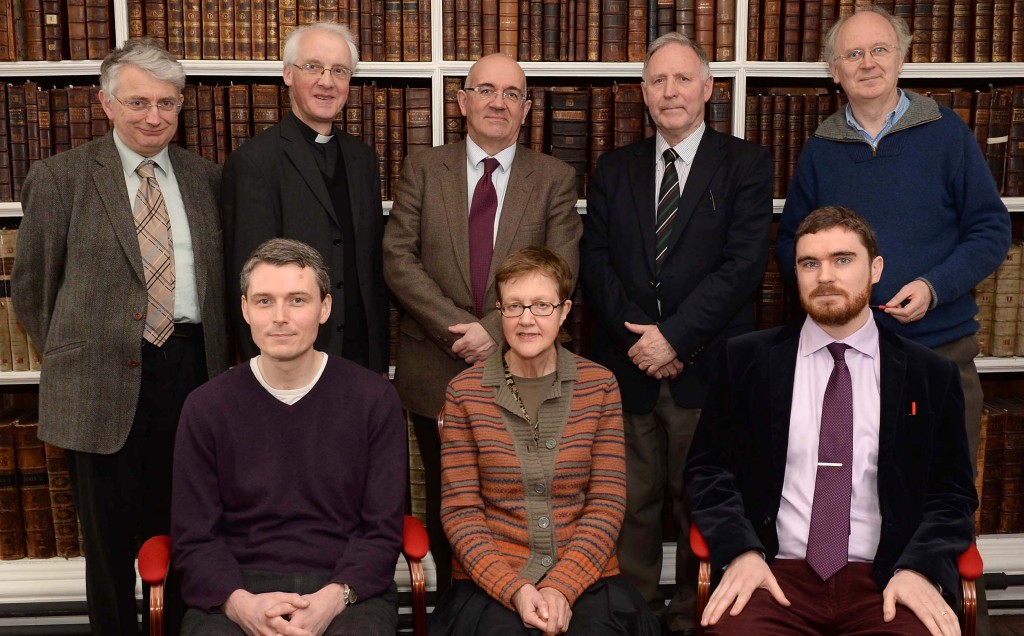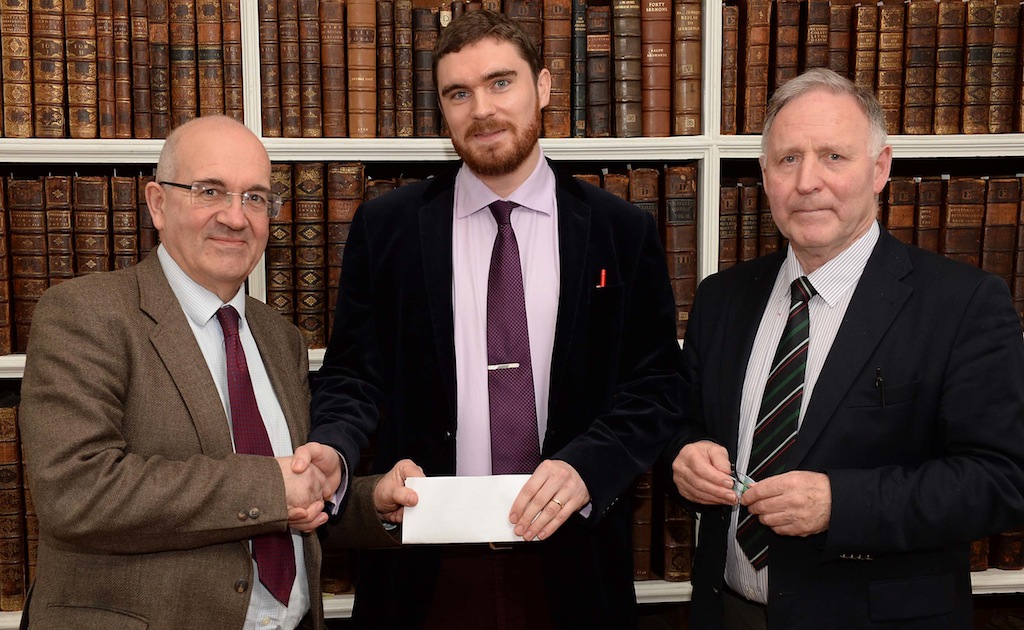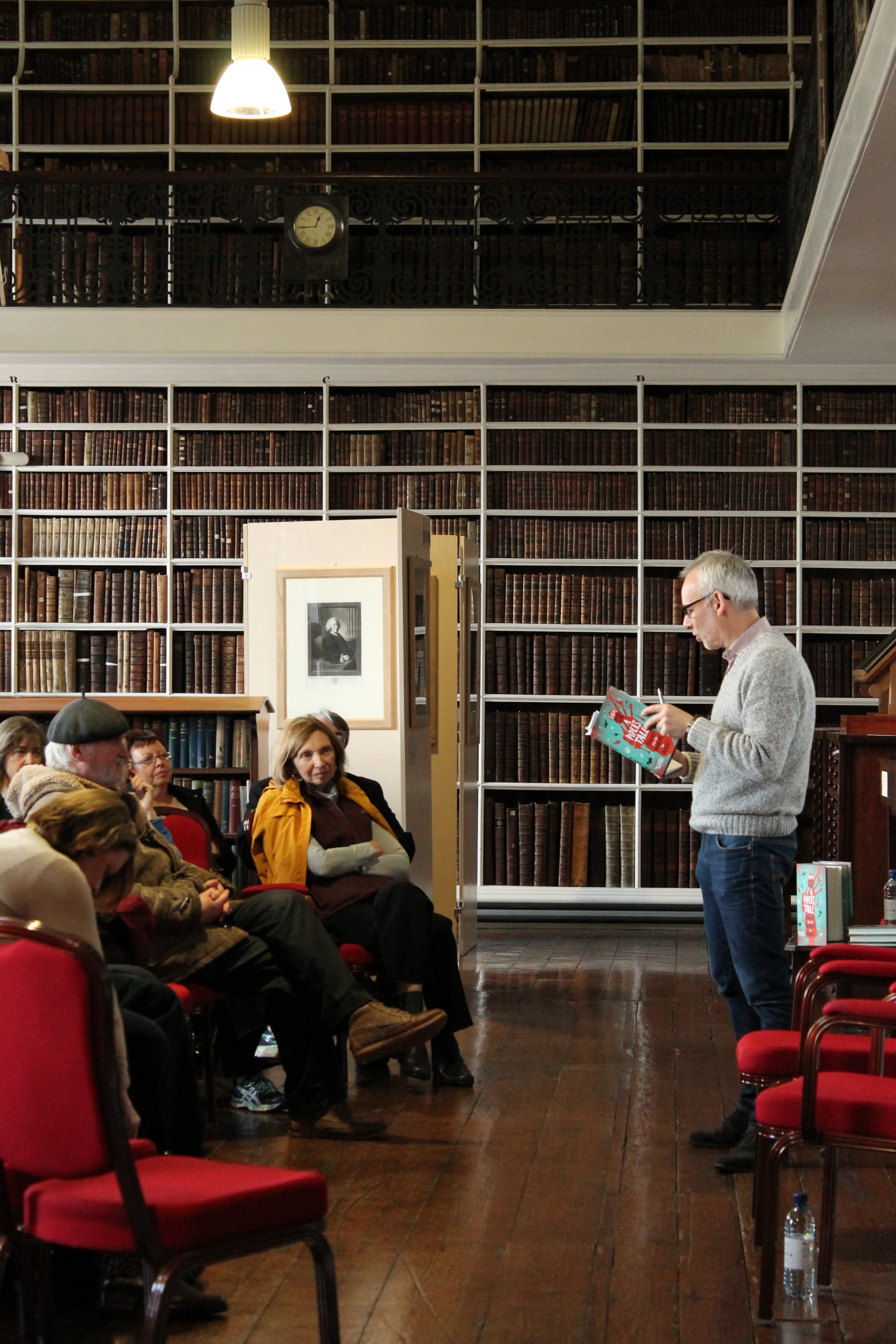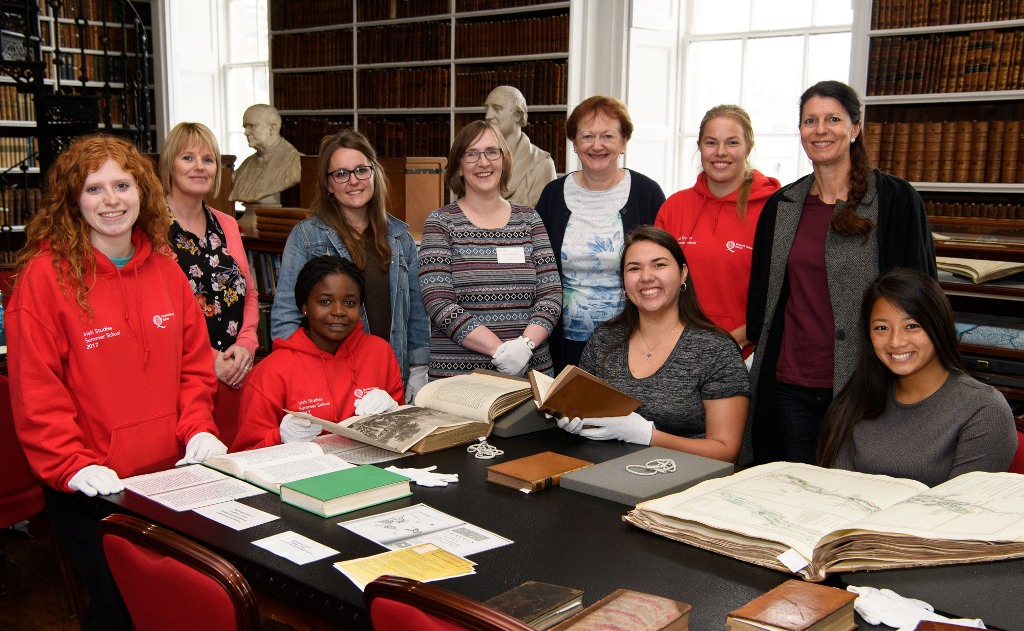

The spring meeting of the Church of Ireland Historical Society was held in Armagh Public Library. The Keeper of the Library, the Very Revd Gregory Dunstan, chaired the meeting, which included four presentations. These were given by Professor Jacqueline Hill on the theme ‘Revd William Phelan FTCD and the historiography of the Church of Ireland’; Mr Ciarán McCabe on ‘Suppressing street begging in pre-Famine Ireland: a case study in the use of parish vestry minute books’; Dr Brendan Scott on ‘The 1622 royal visitation of the Church of Ireland in Ulster’ and Dr Colin Reid on ‘Stephen Gwynn’s Irish Revolution’
The Church of Ireland Historical Society meets twice a year: in Armagh Public Library in April, and in Christ Church Cathedral, Dublin, in November. It exists to promote scholarly interest in the history of the Church, and to facilitate publication.
This year the Society presented an award to the postgraduate student, Mr Ciaran McCabe. Dr Adrian Empey, the Society’s Honorary Secretary, said, “We are very pleased to present Ciaran McCabe with this award to recognise his research in the general field of Church of Ireland History, as part of our policy of encouraging research.”

The Very Revd Gregory Dunstan, Keeper of Armagh Public Library, said, “Although founded by Archbishop Robinson, the Library is, in fact an independent body, established by Act of the Irish Parliament in 1772-73. We are here to foster scholarship, and it is always a pleasure to welcome the Church of Ireland Historical Society for its spring meeting.”
Image credits: Ian Maginess



